Dog Ownership 101 - What it Takes to Raise a Puppy
Puppies are adorable, and once a puppy has captured your heart, there's no turning back.
Life with a puppy is very similar to life with a human toddler. You need many of the same things when it comes to raising a new puppy: patience, tolerance, and an abundance of love and understanding. Let's take a look at some helpful tips for raising a puppy to help ensure your new family member grows into a happy, health, well-adjusted dog.

BE READY
Be ready to adjust your sleep patterns. The good news is puppies usually sleep a great deal, but they don't always sleep through the night. Your new puppy may wake-up everyone in your household with whining or barking because they don't like being left alone. If you don't want to have your puppy in bed with you, consider letting your puppy sleep in the same room as you. Set up a dog bed near your bed so your puppy will feel reassured and confident. A sense of personal safety is important to your puppy.
Be ready to get your puppy plenty of exercise. Not only is it good for your puppy, your new family member is much more likely to sleep through the night if they've been active during the day.
Be ready to take your puppy out for a toilet break, often. Puppies have small bladders, and most can't hold their urine for more than a few hours at a time.
Be ready for whining and barking. One of the fastest things a puppy learns is that whining and barking can get your attention. If you give them that attention every time they bark or whine, you're in for an uphill battle.
Be ready to have everything in your house become a "chew toy." Puppies are driven to chew as their adult teeth start to come in, which means rugs, shoes, curtains, furniture, and just about anything left on the floor is a target. It can be frustrating to see a pillow become a bundle of fuzz, but remember the task of raising a puppy is temporary.
PUPPY HEALTH
Just as you take a baby to a pediatrician, you need to schedule your puppy for a wellness visit with a veterinarian. If you don't have a veterinarian, ask around. Usually friends, neighbors, and even co-workers can provide you with plenty of recommendations. During the first visit, your vet will check for any health problems or parasites, and likely recommend a program for controlling fleas, ticks, and heartworms. The veterinarian will also establish a vaccination schedule and advise you on your puppy's development.
Puppies don't come with instruction manuals, so ask away at the vet's office for information about hygiene, food, and any other tips for raising a puppy you may have.

PUPPY SUPPLIES
Some of the things you'll need right away:
- Puppy food
- Bowls for food and water
- Treats
- A puppy bed
- Cleaning supplies
- Collar and leash
- Brush and comb
PUPPY TRAINING
Good puppy manners don't come naturally. Your entire family must help to teach your new pup how to behave. Use reward-based training methods. The idea is to give your puppy a treat when he or she behaves well, so they repeat that behavior.
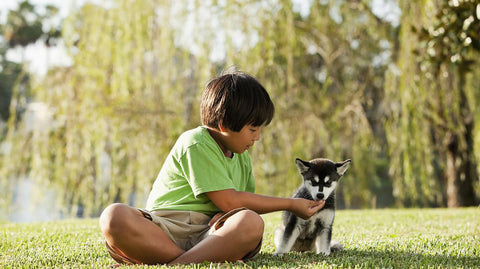
PUPPY SOCIALIZING
Your puppy should never feel forced or pressured when exploring the world, especially in the first month or so in your home. Take time to build a relationship with your entire family, and remember, it can't all be done in one day. Puppies need to meet different people of all ages. They need to feel different surfaces on their feet. They need to see how things work by watching items move ,and they need to start engaging with other animals. It all takes time. Much of this can be done in your own home and neighborhood.

TEACHING PUPPIES NOT TO BITE
This is one of the most important lessons. Behavior problems such as biting are the number 1 reason why dogs end up in shelters or are put down. Establishing your family members as leaders will help your puppy remember that he or she must earn their respect and obey.
Some practical ways to stop biting before it becomes a real problem:
1. Use a teething toy. Distracting and redirecting your pup's biting to a safe and chewable toy is one way to teach them what biting habits are acceptable.
2. Be consistent. While sometimes it may be easier to let a little nipping activity go, be sure to remain consistent in your cues and direction. This sets up clear boundaries for your dog to follow.
3. Say "Ouch!" If your puppy crossed the line and nips you, say "Ouch?" in a shocked tone and immediately stop playing with them. Your puppy should learn that this form of play is unwanted. When they stop, be sure to follow up with positive reinforcement by offering a treat, praise, or resuming play.

OVERALL
It's important that your puppy learn his or her place in your home, and this can be accomplished with overall consistency and a firm, loving hand. Your puppy will learn to be a lovable member of your family, respect your personal safety and authority, and bring you and your family years of fun and companionship.
Mace® Brand is committed to providing community and family safety through individual empowerment. We're always developing new products to help ensure the safety of you and your family. Check out non-lethal personal protection devices at www.mace.com
Another story you would enjoy: Pepper Spray to the Rescue - Postal Carrier Takes Action (mace.com)



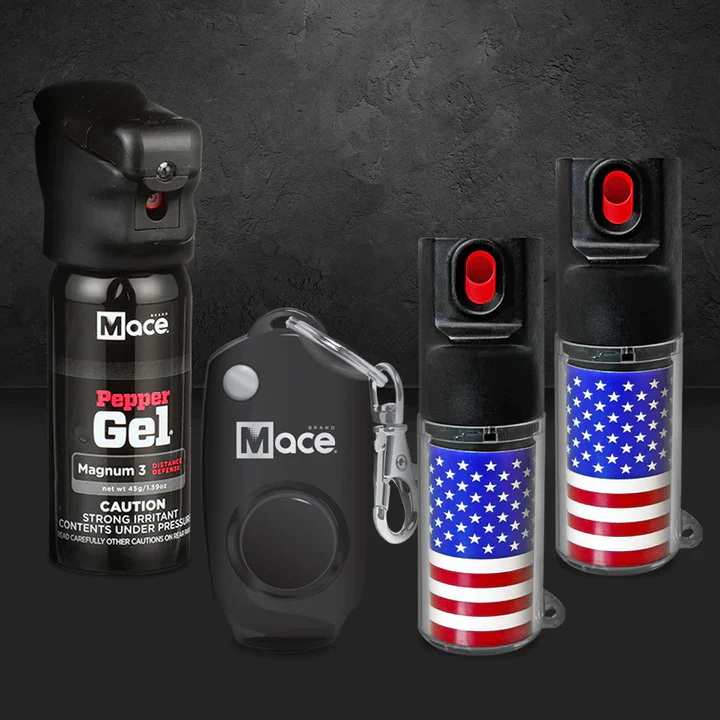
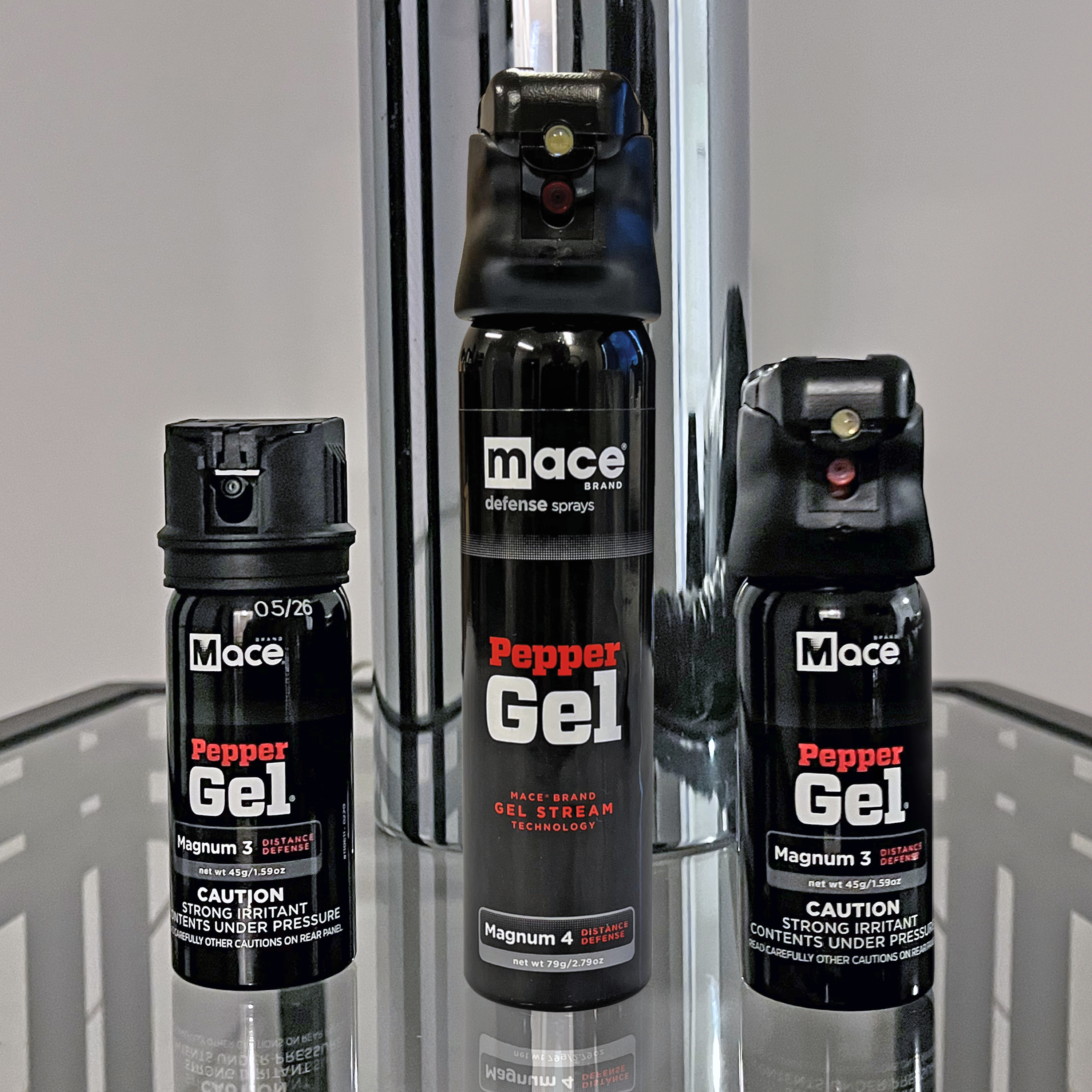

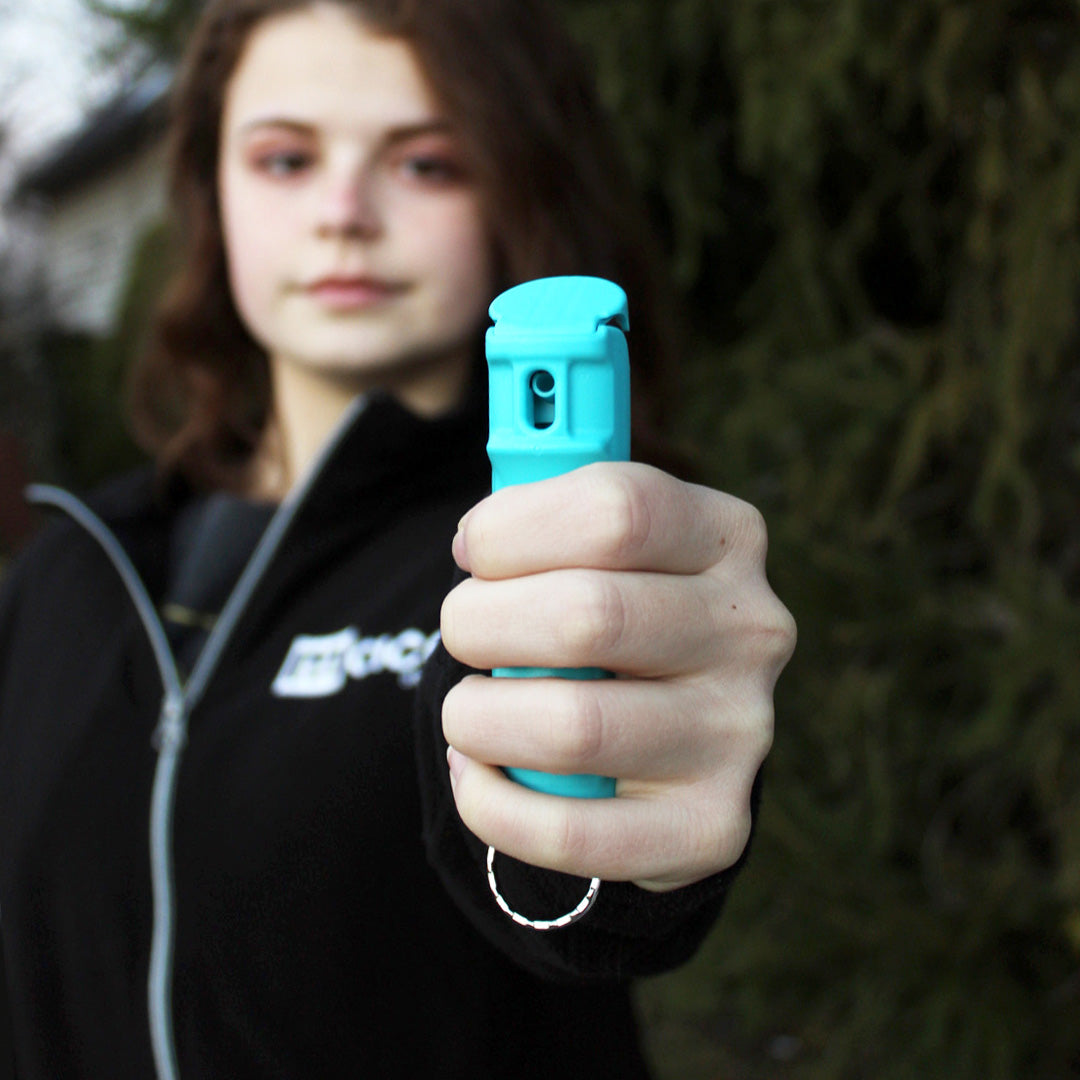
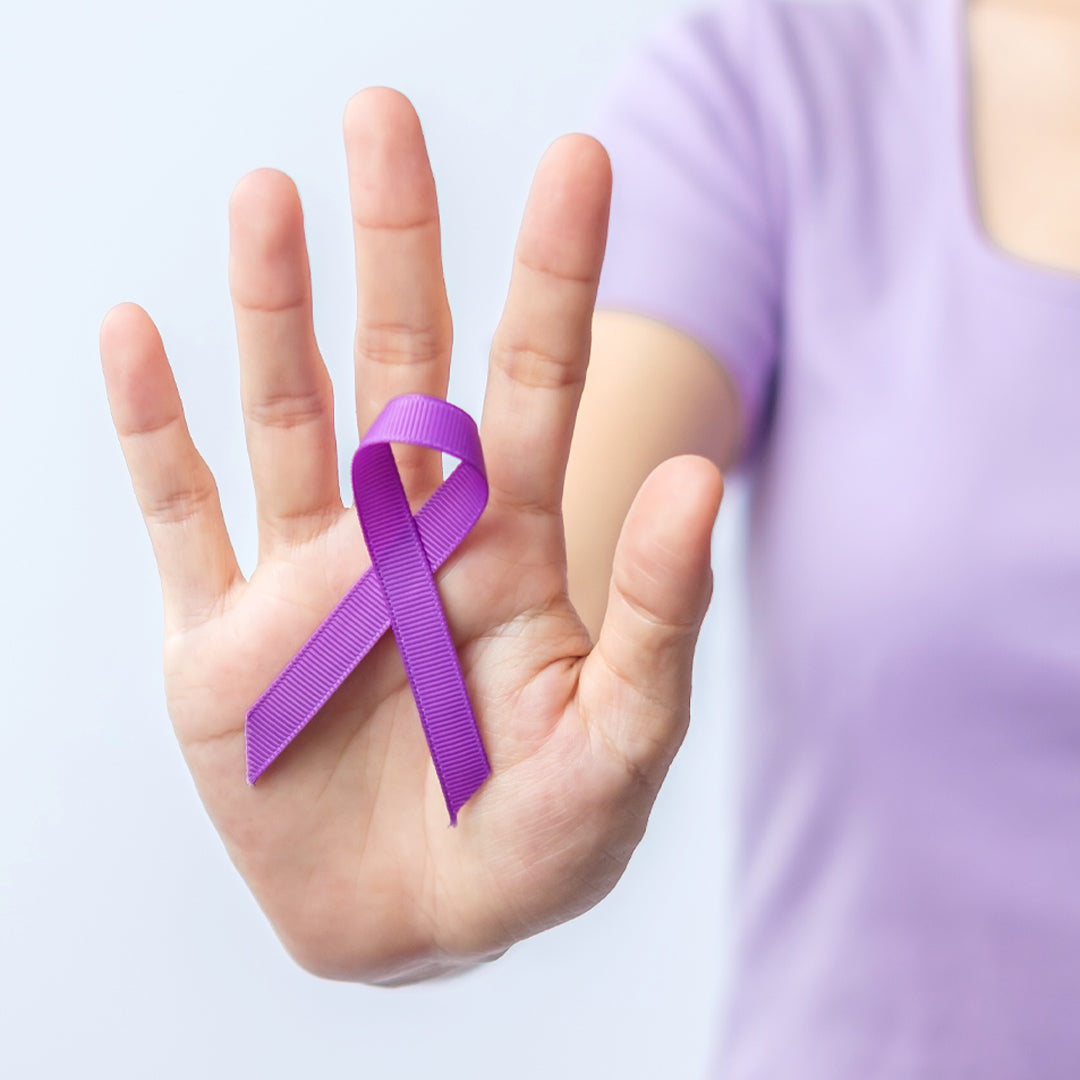
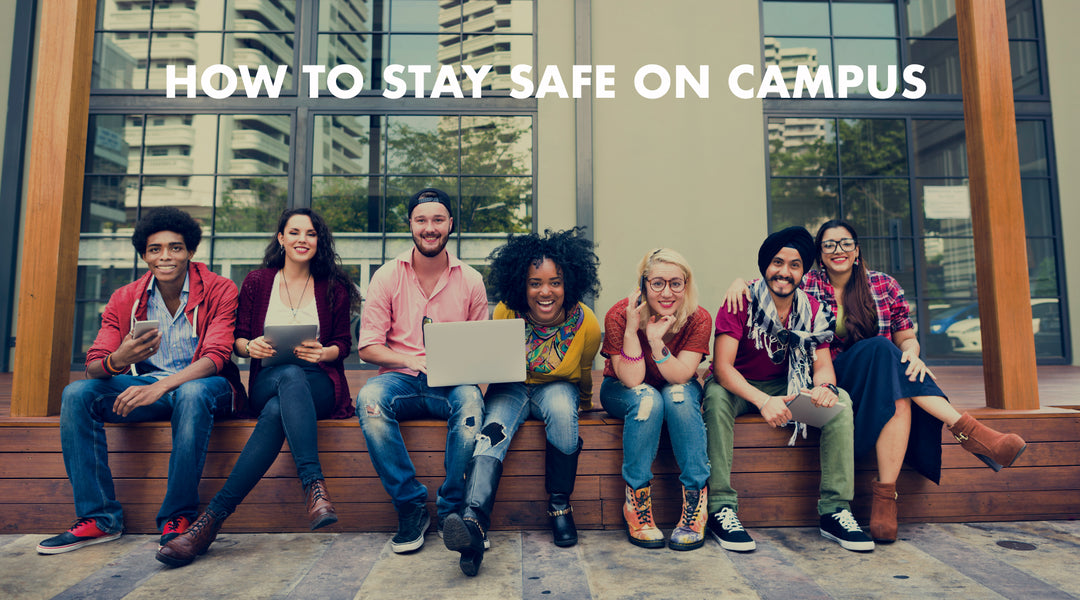
Leave a comment